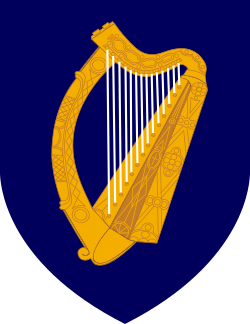| Child and Family Agency (Tusla) v OA | |
|---|---|
 | |
| Court | Supreme Court of Ireland |
| Full case name | Child and Family Agency (formerly Health Service Executive) v O.A. 2015 |
| Decided | 23 June 2015 |
| Citation | https://www.bailii.org/ie/cases/IESC/2015/S52.html |
| Case history | |
| Prior actions | Appealed by appellant from the District Court to the High Court, then appealed to the Supreme Court before being withdrawn by appellant. Revisited by District Court, then appealed to Circuit Court and stated to the Supreme Court by the Circuit Court. |
| Appealed from | High Court, Circuit Court |
| Appealed to | Supreme Court |
| Related action | HSE v OA [2013] 4 JIC 1205 |
| Court membership | |
| Judges sitting | Murray J, O'Donnell J, MacMenamin J, Laffoy J, McKechnie J |
| Case opinions | |
| The Supreme Court case centered on why the District Court gave the appellant Child and Family Agency (CFA) costs. Judge Nolan asked two questions: is it okay or right for the Circuit Court to let the appellant's appeal against an order for costs made against it, after looking at all the facts and finding that the appellant hadn't done anything wrong? MacMenamin J. argued that it was important to find a balance between proper legal procedures and the high levels of skill needed in child law cases to protect the welfare of children and deal with constitutional questions about legal representation. He suggested that parents should not get a cost order in District Court child care cases unless there are specific features to the case in question, such as a decision that the CFA started or kept the proceedings without good reason, arbitrarily, or capriciously. It was also suggested that the Circuit Court should only overturn decisions made by the District Court if there is a deviation from the guidelines and standards outlined in this judgment. The case was sent back to the Circuit Court so that the above principles could be applied. | |
| Decision by | MacMenamin J |
| Keywords | |
| |
Child and Family Agency (formerly Health Service Executive) v O.A.[2015] IESC 52, [1] also known as Child and Family Agency (Tusla) v OA, is a reported Irish Supreme Court case decision. It was decided that parents should not get an order for costs in the District Court unless there are specific elements in the case at hand. The Supreme Court set up these specific points and ruled that the Circuit Court should only overturn District Court decisions if they do not follow the principles and criteria set out. [2] [3]